Herb Combos That Will Make Your Garden Thrive
Herb Combos That Will Make Your Garden Thrive
Growing herbs is a great way to add flavor and freshness to your cooking, and it can also be a fun and rewarding hobby. But did you know that certain herbs can actually benefit each other when planted together? This is called companion planting, and it's a great way to boost the health and productivity of your garden.
In this blog post, we'll discuss some of the best herb combos for companion planting. We'll also provide some tips on how to plant and care for your herbs so that you can enjoy a bountiful harvest all season long.
Why Companion Plant Herbs?
There are several reasons why companion planting herbs is a good idea. First, it can help to deter pests and diseases. Many herbs have natural insecticidal or fungicidal properties, and planting them together can help to create a protective barrier around your other plants.
Second, companion planting can help to improve the soil quality. Some herbs, such as chives and mint, release compounds that can break down organic matter and improve drainage. Others, such as basil and parsley, can help to attract beneficial insects that can help to pollinate your plants and control pests.
Finally, companion planting can simply make your garden look more attractive. By planting herbs in different combinations, you can create a visually appealing and functional space.
Some of the Best Herb Combos
Here are a few of the best herb combos for companion planting:
- Basil, tarragon, and oregano: These Mediterranean herbs all have similar growing requirements and can help to deter pests such as aphids and mosquitoes.
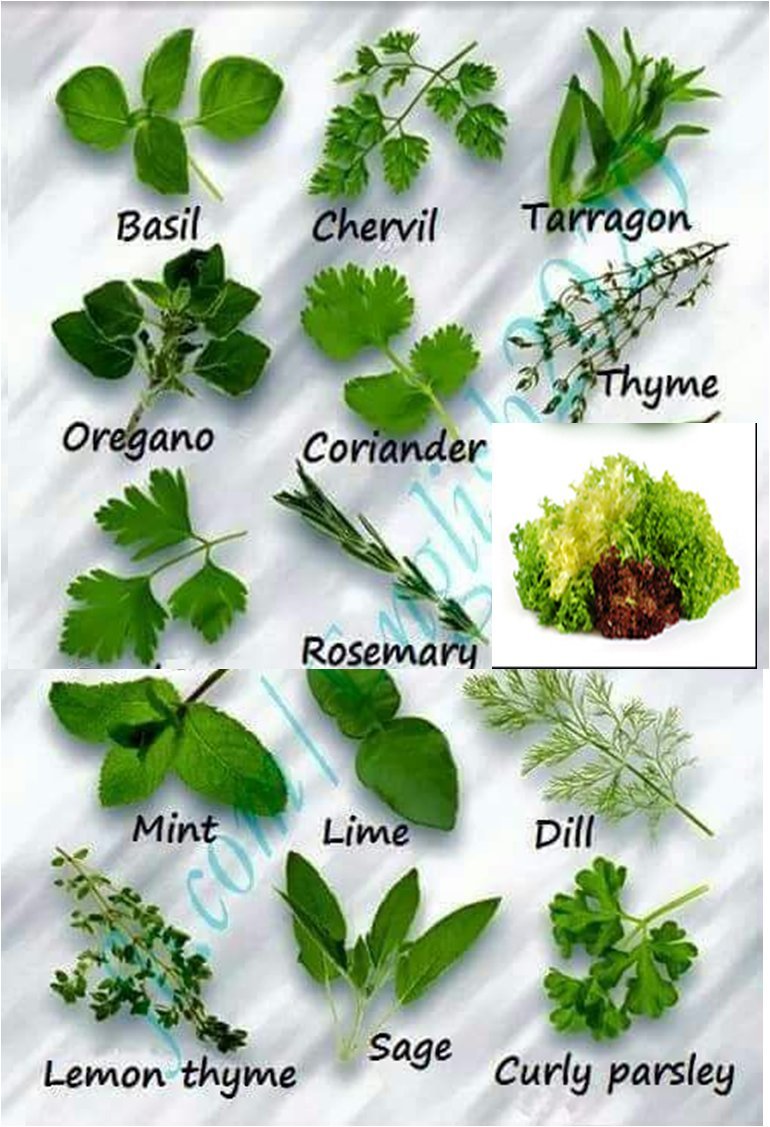
- Lemon verbena, dill, and cilantro: These herbs all have a lemony scent that can help to attract beneficial insects such as ladybugs and hoverflies.

- Lavender, rosemary, and thyme: These herbs are all drought-tolerant and can help to attract pollinators such as bees and butterflies.

- Parsley, sage, and chives: These herbs are all versatile and can be used in a variety of dishes. They also have different colors and textures, which can add visual interest to your garden.

- Mint and tomatoes: Mint can help to deter nematodes, which are small worms that can damage tomato roots.
- Cucumbers and nasturtiums: Nasturtiums can help to attract aphids away from cucumbers.
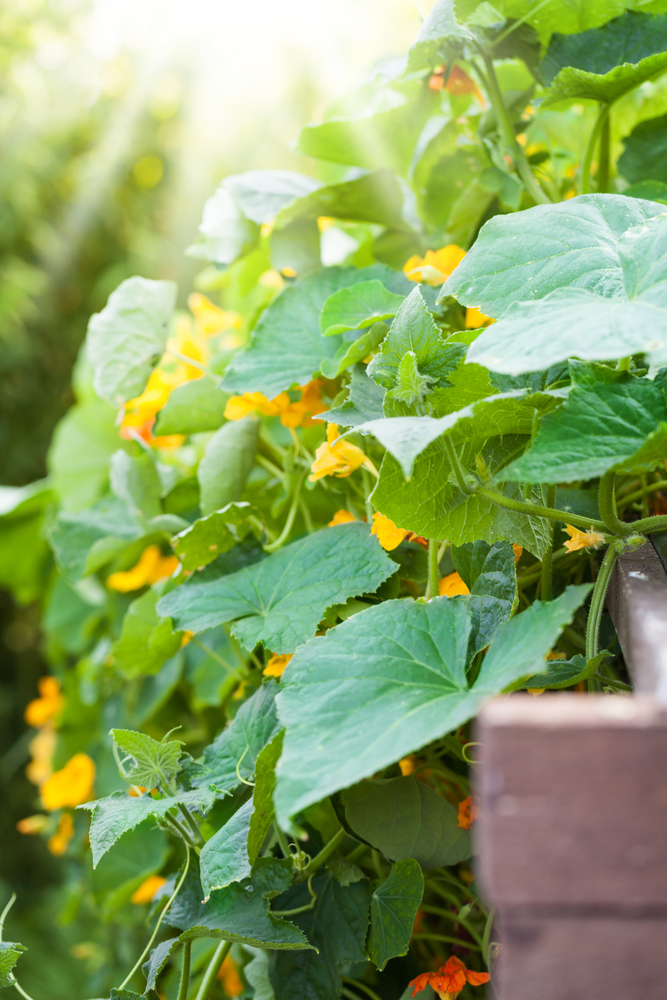
- Beans and marigolds: Marigolds can help to repel Mexican bean beetles, which are a common pest of beans.
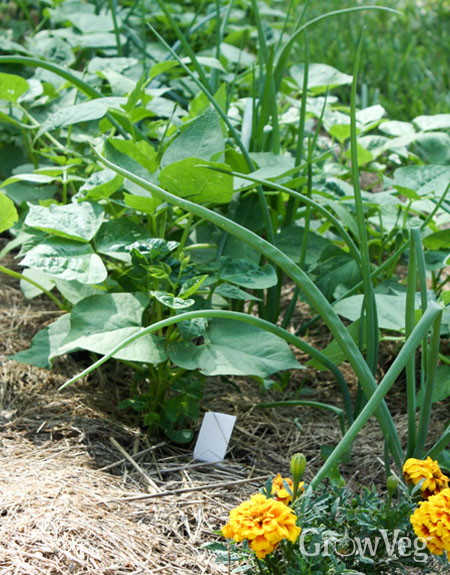
These are just a few of the many great herb combos that you can try. When choosing herbs to plant together, it's important to consider their growing requirements and the benefits that they can offer each other. With a little planning, you can create a thriving herb garden that will provide you with fresh, flavorful herbs all season long.
Tips for Planting and Caring for Herbs
Once you've chosen your herb combos, it's time to start planting. Here are a few tips for planting and caring for herbs:
- Choose a sunny spot with well-drained soil.
- Amend the soil with compost or other organic matter before planting.
- Space the plants according to their mature size.
- Water regularly, especially during hot, dry weather.
- Fertilize every few weeks with a balanced fertilizer.
- Harvest herbs regularly to encourage new growth.
With proper care, your herb garden will thrive for years to come.
Conclusion
Companion planting is a simple and effective way to boost the health and productivity of your herb garden. By planting certain herbs together, you can help to deter pests and diseases, improve soil quality, and attract beneficial insects. With a little planning, you can create a beautiful and productive herb garden that will provide you with fresh, flavorful herbs all season long.
When it comes to planting herbs, it's important to consider which ones will grow well together. Some herbs, like basil and mint, are very competitive and can crowd out other plants. Others, like dill and lavender, have different soil pH requirements and won't thrive if planted together.
To find out which herbs are compatible, you can visit Gardenia Inspiration. This website has a comprehensive list of herbs and their companion plants. You can also find information about the ideal growing conditions for each herb, so you can create a garden that will thrive.
In addition to providing information about companion planting, Gardenia Inspiration also offers tips on how to care for your herbs, how to harvest them, and how to use them in cooking. So whether you're a beginner or a seasoned gardener, Gardenia Inspiration is a great resource for all things herbs.
FAQ of herbs that should be planted together
- What herbs should be planted together?
There are many herbs that can be planted together, but some of the most popular pairings include:
* Basil and tomatoes: Basil helps to repel pests that can damage tomatoes, and tomatoes provide the moisture that basil needs to thrive.
* Chives and carrots: Chives help to repel pests that can damage carrots, and carrots help to improve the flavor of chives.
* Cilantro and beans: Cilantro helps to repel aphids and other pests that can damage beans, and beans provide the nitrogen that cilantro needs to thrive.
* Dill and fennel: Dill and fennel both attract beneficial insects that can help to control pests in your garden.
* Lavender and rosemary: Lavender and rosemary both have strong scents that can deter pests.
It is important to note that not all herbs can be planted together. For example, mint is a very aggressive plant that can take over a garden if it is not contained. It is best to plant mint in its own pot or planter.
- What herbs should not be planted together?
Some herbs should not be planted together because they can compete for resources or repel each other. Some of the most common pairings to avoid include:
* Basil and rosemary: Basil and rosemary have different water needs, and planting them together can lead to one or both plants being stressed.
* Basil and fennel: Basil and fennel have different nutrient needs, and planting them together can lead to nutrient deficiencies in one or both plants.
* Cilantro and tomatoes: Cilantro and tomatoes can compete for water and nutrients, and planting them together can lead to stunted growth in one or both plants.
* Dill and carrots: Dill and carrots can compete for sunlight, and planting them together can lead to one or both plants not getting enough light.
* Lavender and sage: Lavender and sage have different soil pH requirements, and planting them together can lead to one or both plants not being able to thrive.
- What herbs grow well together in containers?
Many culinary herbs thrive in containers, and some of the best pairings include:
* Basil, chives, and parsley: These herbs all have similar water and nutrient needs, and they can be grown in a single container.
* Cilantro, mint, and oregano: These herbs all have different water and nutrient needs, so they can be planted in separate containers.
* Lavender, rosemary, and thyme: These herbs all have similar water and nutrient needs, and they can be grown in a single container.
* Sage, savory, and tarragon: These herbs all have different water and nutrient needs, so they can be planted in separate containers.
When planting herbs in containers, it is important to choose a container that is the correct size for the herbs you are planting. The container should also have drainage holes to prevent the roots from becoming waterlogged.
- How do herbs benefit each other?
Herbs can benefit each other in a number of ways. For example, some herbs can attract beneficial insects that can help to control pests. Other herbs can release chemicals that can repel pests or diseases. Still other herbs can improve the flavor or yield of other plants.
For example, basil can attract ladybugs, which are a natural predator of aphids. Chives can release chemicals that can repel thrips and other pests. Dill can improve the flavor of tomatoes and other vegetables. And lavender can improve the yield of strawberries.
By planting herbs together, you can create a garden that is both beautiful and productive.
- What are some tips for companion planting herbs?
Here are some tips for companion planting herbs:
* Do your research. Before you plant any herbs together, it is important to do your research to make sure that they are compatible.
* Consider the plants' needs. When choosing herbs to plant together, it is important to consider their water, sunlight, and nutrient needs.
* Plant in groups. Herbs that benefit each other can be planted in groups to maximize their benefits.
* Use containers. If you do not have a lot of space, you can plant herbs in containers.
* Experiment. There is no right or wrong way to companion plant herbs. The best way to find out what works for you is to experiment.
Image of herbs that should be planted together
Here are 5 different images of herbs that should be planted together:
- Basil and tomatoes: Basil helps to deter tomato hornworms, while tomatoes provide support for basil plants.
- Rosemary and lavender: These herbs have similar growing requirements and can help to deter pests.

- Sage and thyme: These herbs can be planted together in a pot or in the ground. They both have a strong aroma that can help to deter pests.
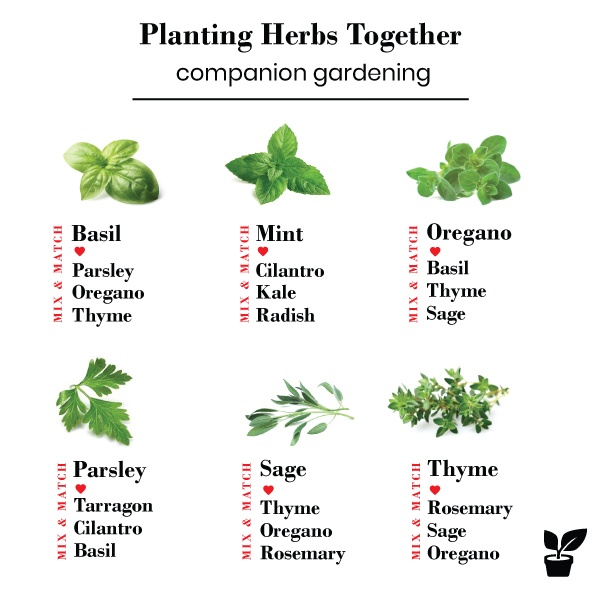
- Mint and chives: Mint and chives are both aggressive growers, so it's best to plant them in separate pots or areas of your garden. However, they can be planted together if you give them plenty of space.

- Dill and carrots: Dill attracts beneficial insects that can help to control pests, while carrots benefit from the shade that dill provides.
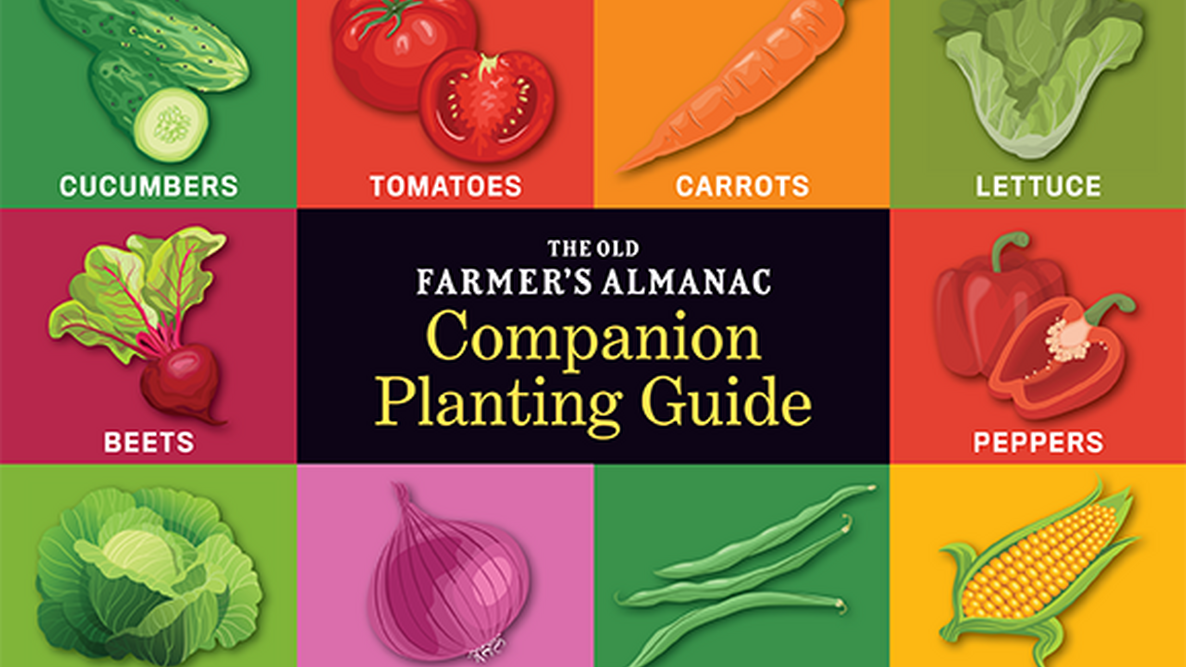
Post a Comment for " Herb Combos That Will Make Your Garden Thrive"